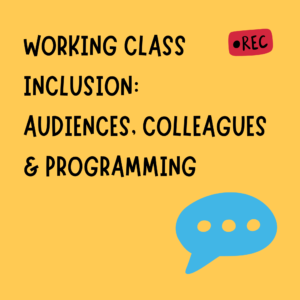Creative and Credible: Project Planning
Perhaps the most important and extensive part of any evaluation is the work undertaken before any data are gathered.
Perhaps the most important and extensive part of any evaluation is the work undertaken before any data are gathered.
It can be challenging to make time and resources available for evaluation, which can sometimes seem costly in relation to the overall project costs. However, it is increasingly important to factor in evaluation costs when planning projects, particularly if these are envisaged as having a role to play in supporting health and wellbeing or meeting … More
Good practice can be demonstrated in relation to each stage of the evaluation cycle (Daykin et al. 2013). Although there are no agreed codes of practice or ethics for evaluators, as there are for researchers, some key principles emerged from the Creative and Credible Project.
Support for third sector organisations to develop capacity for evaluation from Paul Hamlyn Foundation.
Examples of Creative Evaluation Techniques.
This toolkit details a selection of creative techniques that practitioners can use to enable participants to engage in understanding and share their feelings and opinions in a reflective manner. It gives guidance on how the material gained through creative techniques can be used to prove the value of our work.
This toolkit for cinemas points to the information that you need to know to determine whether you have screened your films successfully, attracted intended audiences, and made a difference to the people that attend as well as your wider community and economy.
Podcasting a live event can be a great way to make your valuable event reach more people though the power of audio. It can help showcase the work and document the event for future listening.
This guide has been created by Adam Zmith, Co-founder of Aunt Nell, Producer of The Log Books and The Film We Can’t See.
It is a guide for film programmers / event managers / tech people working in cinemas who want to make a podcast out of their live events. It has been created for our T.L.C (aka Tender Loving Care for Trans-Led / Trans-Loved Cinema) series of events and podcasts. The is aimed at people who would like to create a podcast and are running live events in cinemas where there will be a PA/sound system and assistance from a tech person.
This guide intends to give you broad headings for everything you need to think about, some answers for how to make it all happen, and links out to further information.
Download the How To Podcast Your Live Event guide

Inclusive Cinema’s podcast series, Working Class Inclusion: Audiences, Colleagues & Programming, provides information and guidance to support exhibitors in improving cinema experiences for working-class people and those in poverty.
The resource comprises a series of six podcast episodes that cover a range of areas, from sliding-scale ticketing and equitable employment practices, to the films that are programmed and how they are presented.
There is also an access and inclusion checklist to support venues, festivals, industry initiatives and event organisers with strategic and operational measures to welcome working-class audiences and colleagues.
The series is presented by Dr. Leanne Dawson, senior lecturer in Film and Diversity and Inclusion Consultant.
The resources are intended as a practical guide to support cinemas, festivals and film exhibitors to welcome working class people as audiences and staff to their venues and increase access to independent cinema for all.
Working through these 6 short podcasts we hope you can find ideas and understanding of barriers for working class people, with a view to increasing access in cinemas, and offer a chance to reflect on where your venue is currently at.
Click on each link to listen to all 6 podcasts
You can download the transcript for each episode from the downloads section.
This introductory episode explores some issues with working class inclusion such as how we define class and that the term ‘working-class’ groups many different experiences together.
What to reflect on your organisation and how it can take small, cost-free measures to improve it’s welcome to working class people.
What to reflect on whilst working on Equality, Diversity and Inclusion EDI) in your organisation.
Consider the barriers you create that prevent people entering and/or enjoying your space or event.
How to include a spectrum of working class representation onscreen.
How to ensure you have working class employees at all levels of the organisation.
You can listen to all six podcast episodes of Working Class Inclusion: Audiences, Colleagues & Programming here:
Coming soon to:
We have provided a checklist of measures as suggested in the podcasts to provide your staff and venue with an easy point of reference when considering inclusion of working-class people in your work.
You can find this in the downloads section on this page.
We have provided a list of film suggestions which can be used for ideas and inspiration for film programmers when considering working-class representation in cinema. We’ll be updating this with distributor/access materials information as this comes in (until the end of March 2023).
You can find this in the downloads section on this page.